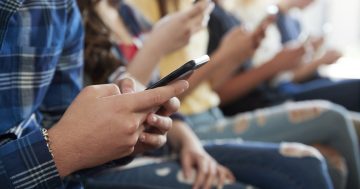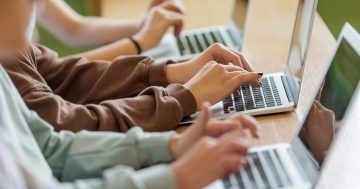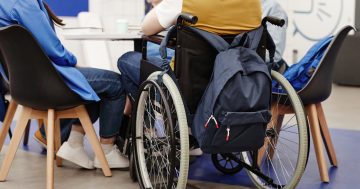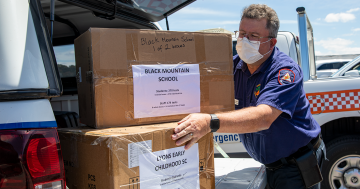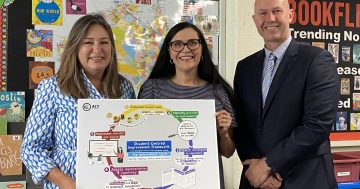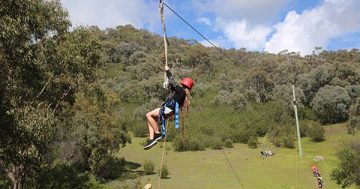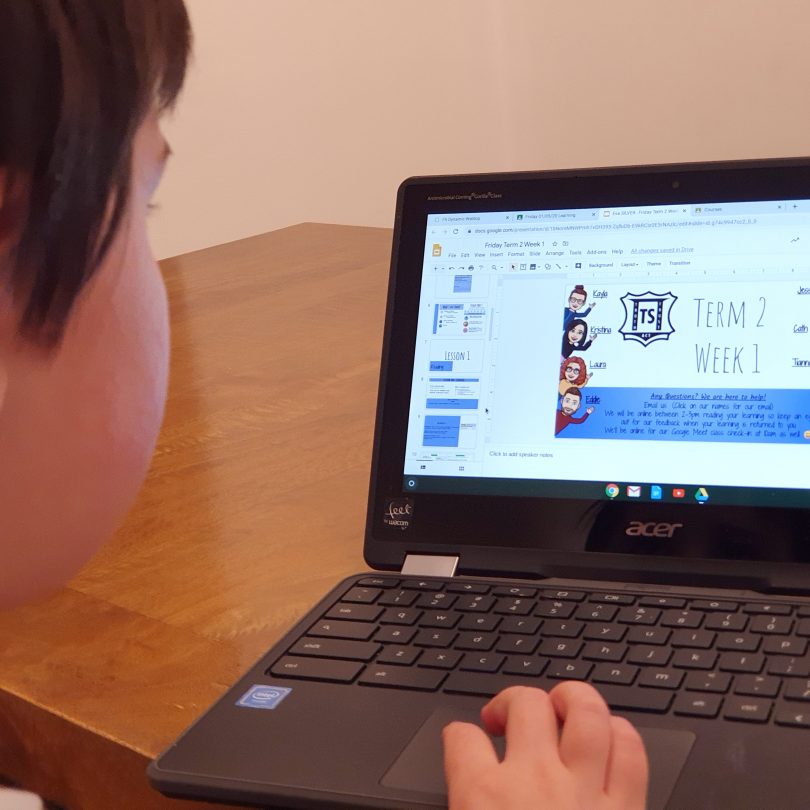
School students have had their access restricted on ACT Government-issued Chromebooks to ensure appropriate usage. Photo: File.
More than 20,000 ACT primary school and secondary school students have had their access to websites and applications via ACT Government-issued Chromebooks tightened in a move the ACT Education Directorate says prevents access to unsafe content.
Additional filters have been applied to every ACT Government-issued public school Chromebook to ensure they are being used appropriately.
While one year 11 student told the ABC he was unable to access sites such as Google and YouTube, an ACT Education Directorate spokesperson told Region Media settings applied still allow students to undertake learning and activities they need to.
“Students undertake study activities in a range of locations, including on school premises, at home or in public spaces,” said the spokesperson.
“By preventing access to unsafe content at the device level, students are provided with a safe way to access educational material wherever they are studying, and whatever internet service they may be using, such as an open wi-fi connection at a local cafe.”
The ACT Education Directorate would not elaborate on which websites are being filtered, however the spokesperson said internet filtering rules are aligned to year levels across all public schools in the ACT to support the different educational needs of students.
“Internet filtering policies applied are aligned to the Australian curriculum,” said the spokesperson. “They also align with the social and emotional learning undertaken by students that support good digital citizenship at all ages.”
The update broadens the already existing settings from only applying while connected to school wi-fi, to device-based filtering. They are the same settings as previously applied, however they now apply at all times and in any location.
The update is also on the forward plan as part of the program the ACT Government has had in place for the past two years. To date, more than 20,000 Canberra students have been provided with a Chromebook device through the program.
The ACT Education Directorate can help to adjust settings where websites have been miscategorised, or when feedback from students or schools indicates the need to make additional adjustments.
Pilot testing was also conducted through the second half of 2020, and feedback from the pilot schools and their students was considered and updated prior to this final rollout.
“The settings applied still enable students to undertake learning and activities required of them,” said the spokesperson.
“Ongoing adjustments to these settings can be made, and this is a practice we have completed since web filtering was introduced almost a decade ago.
“Feedback from students and teachers is welcome and any ongoing additional feedback is always welcome and will be reviewed.”
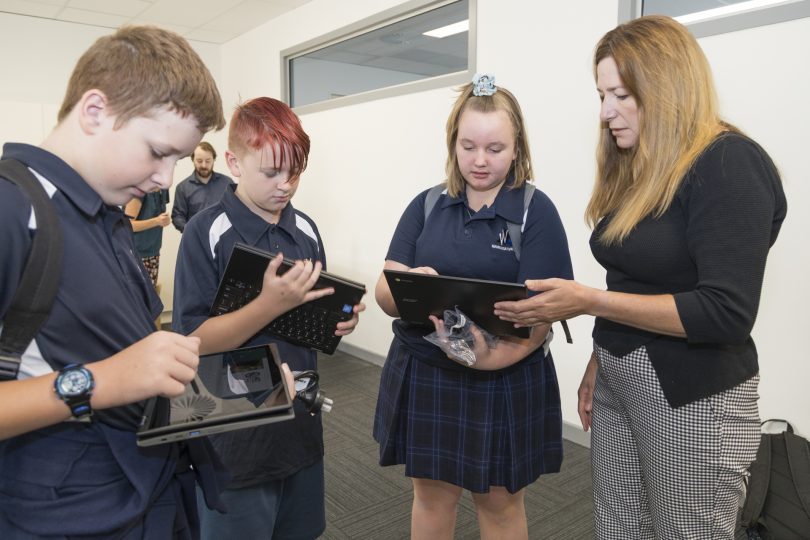
ACT Minister for Education and Early Childhood Development Yvette Berry handing out new Chromebooks to students. Photo: Michelle Kroll.
Once a student receives a Chromebook device, parents and carers are required to sign the ‘Communities Online: Acceptable Use of ICT – Parents and Students Policy’, which outlines the expectations of students using ACT Government ICT resources, both on and off school grounds.
Students are also regularly reminded of their obligations to use online content safely.
“These reminders are supported by broader learning moments that empower students with the knowledge, skills and confidence to learn with digital tools at school, at work and in their communities to support them become good digital citizens,” said the ACT Education Directorate spokesperson.













